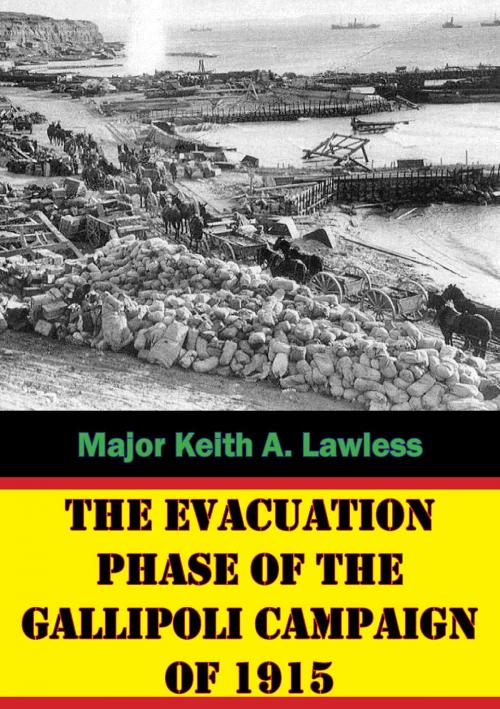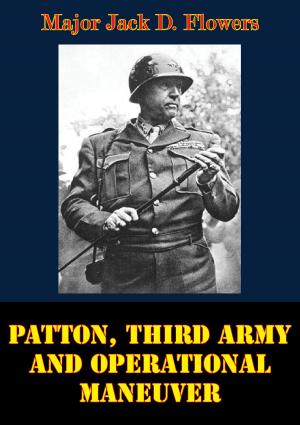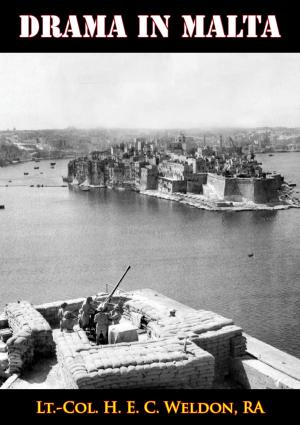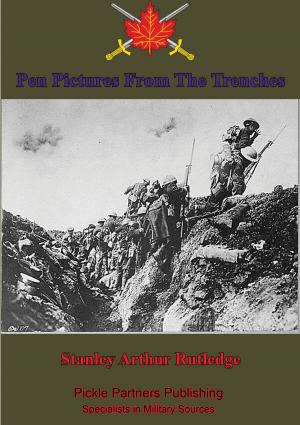The Evacuation Phase Of The Gallipoli Campaign Of 1915
Nonfiction, History, Military, World War I, Germany, British| Author: | Major Keith A. Lawless | ISBN: | 9781786252333 |
| Publisher: | Lucknow Books | Publication: | November 6, 2015 |
| Imprint: | Lucknow Books | Language: | English |
| Author: | Major Keith A. Lawless |
| ISBN: | 9781786252333 |
| Publisher: | Lucknow Books |
| Publication: | November 6, 2015 |
| Imprint: | Lucknow Books |
| Language: | English |
This battle study investigates operational and tactical considerations of the battles of Arracourt, which took place in September 1944 as the 4th Armored Division of Patton’s Third Army clashed with the Fifth German Panzer Army in the French province of Lorraine on the U.S. drive to the German West Wall.
By examining detailed German and American unit histories, logs, and summaries, as well as personal papers, this study illuminates differences and similarities in reporting the U.S. penetration from the Nancy Bridgehead to Arracourt, the German offensive at Lunéville as a prelude to Arracourt, and the two German offensives at Arracourt, as the Fifth Panzer Army attempted to link up with a German unit cut off at Nancy.
Arracourt exemplifies penetration and mobile defense and illustrates the demand for good intelligence and flexible command and control. It shows the inherent risks of piecemeal commitment of reserves, the need for timely orders and good logistical support, as well as the tactical advantages of air superiority.
This battle study investigates operational and tactical considerations of the battles of Arracourt, which took place in September 1944 as the 4th Armored Division of Patton’s Third Army clashed with the Fifth German Panzer Army in the French province of Lorraine on the U.S. drive to the German West Wall.
By examining detailed German and American unit histories, logs, and summaries, as well as personal papers, this study illuminates differences and similarities in reporting the U.S. penetration from the Nancy Bridgehead to Arracourt, the German offensive at Lunéville as a prelude to Arracourt, and the two German offensives at Arracourt, as the Fifth Panzer Army attempted to link up with a German unit cut off at Nancy.
Arracourt exemplifies penetration and mobile defense and illustrates the demand for good intelligence and flexible command and control. It shows the inherent risks of piecemeal commitment of reserves, the need for timely orders and good logistical support, as well as the tactical advantages of air superiority.


![Cover of the book The Mediterranean And Middle East: Volume II The Germans Come To The Help Of Their Ally (1941) [Illustrated Edition] by Major Keith A. Lawless](https://www.kuoky.com/images/2014/august/300x300/9781782896227-i80K_300x.jpg)


![Cover of the book Contemptible [Illustrated Edition] by Major Keith A. Lawless](https://www.kuoky.com/images/2015/november/300x300/9781786251114-fijE_300x.jpg)


![Cover of the book Adventures Of An Ensign [Illustrated Edition] by Major Keith A. Lawless](https://www.kuoky.com/images/2015/november/300x300/9781786255617-DmjT_300x.jpg)

![Cover of the book One-Man Airforce [Illustrated Edition] by Major Keith A. Lawless](https://www.kuoky.com/images/2014/august/300x300/9781782894483-aGMI_300x.jpg)




